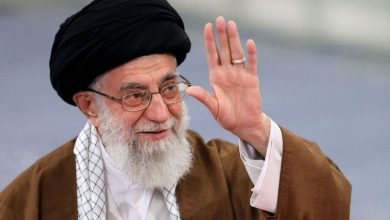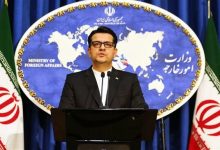
Denver — The US is not considering easing sanctions on Iranian crude exports, either in exchange for a trade concession from China or any other action which falls short of meeting the demands outlined by the Trump administration in May, Brian Hook, the US State Department’s special representative for Iran, told S&P Global Platts.
“The United States is not looking to grant any sanctions relief until we have a final deal with the Iranian regime that addresses the range of threats they present to peace and security,” Hook said in an interview late Monday. US Secretary of State Mike Pompeo’s list of 12 demands “is as current today as it was in May of 2018,” Hook said.
Those demands include Iran halting its ballistic missile program and ending its support for terrorist groups and are widely viewed as a non-starter for negotiations with Iran. Analysts have speculated that the US may allow some easing of sanctions, such as allowing China to import a specified amount of Iranian crude, in order to get some concessions from China in ongoing trade talks and prevent oil prices from rising.
But Hook dismissed that speculation, pointing to Iranian oil sanctions as a clear policy success.
“We have a lot of confidence that we have put in place the right strategy to starve the regime of the revenue that it needs to behave like an expansionist revolutionary theocracy,” Hook said. “But we also know that we need to put this sanctions architecture in place to compel them, to pressure them to come back to the negotiating table. Without the policy we put in place, both of those things are impossible.”
Hook said that since reimposing oil sanctions a year ago, and ending waivers for some of Iran’s largest oil buyers in May, Syria remains the lone market for Iranian crude.
Iranian oil exports, which averaged more than 1.7 million b/d in March, fell below 500,000 b/d in August, September and October, based on preliminary estimates compiled from Platts trade flow software cFlow and shipping sources. Around 200,000-250,000 b/d of Iranian exports in September went to China, according to preliminary tracking.
In September, the US Treasury Department sanctioned six Chinese entities and their top executives, including two affiliates of Cosco Shipping, for trading oil with Iran in violation of US sanctions. The US previously sanctioned China’s state-owned trading company Zhuhai Zhenrong and its top executive for oil trade with Iran.
“In the case of China, they now understand that we will sanction any sanctionable activity, especially illicit imports of Iranian crude oil,” Hook said Monday. “In the case of Syria, we are doing everything we can to disrupt and deter oil shipments.”
Hook said that President Trump is “no hurry” to end sanctions on Iran.
“We think that our pressure is greater than their resistance,” he said, adding that the administration forecast correctly that global oil supply would outpace demand in 2019, lessening the impact of the loss of Iranian crude on the world market.
“We called it correctly,” he said. “We have balanced our national security and economic objectives very carefully and very successfully. We’ve just been very pleased with how we have effectually collapsed Iran’s oil exports and have maintained a well-supplied and stable oil market. That’s been very deliberate.”
Hook also dismissed concerns about Rosneft’s plans to move toward contracts denominated in euros instead of dollars as a way to trade oil outside the reach of US sanctions. Early this year, the European Union launched discussions on how to promote the euro over the US dollar in oil and other commodities trading.
“America’s role in the global economy makes it very hard to do significant transactions outside the reach of our sanctions,” Hook said. “So were very comfortable with the actions that we have taken to date and the effect they have had to collapse support for those sectors of the Iranian economy that we have targeted.”







